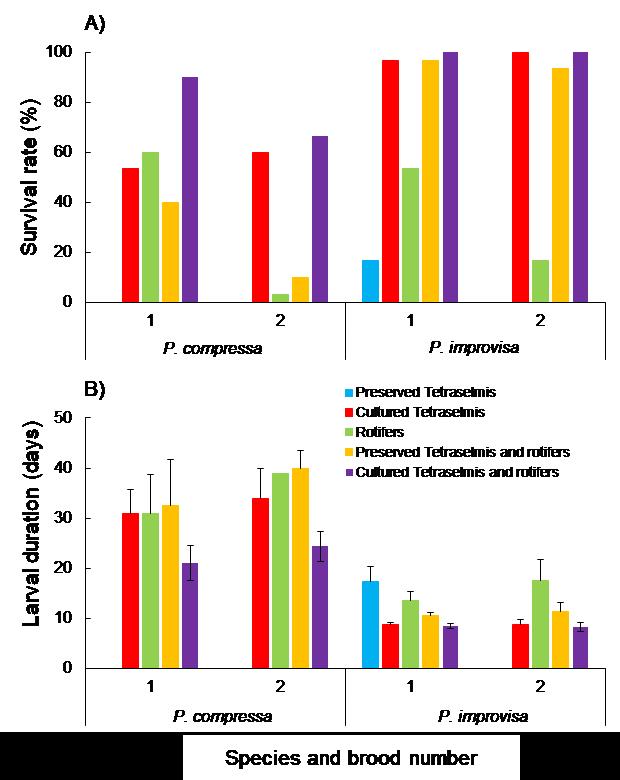Adaptation of Landlocked Atyid Shrimp
Larvae
Facultative lecithotrophic larvae of landlocked Paratya improvisa could survive and
develop into the juvenile stage under poor feeding conditions that are
not suitable for the survival and development of planktotrophic larvae
of amphidromous Paratya compressa. The present study thus
provides empirical data that suggest that limited food conditions are a
major selective force influencing landlocked life history traits with
few and large eggs (i.e.,
larvae). Our results and observations further highlight strategies that
landlocked P. improvisa
larvae use to stay in or near parental habitats—i.e., fast development and
settlement behaviour beginning with the early zoeal stage.

Read the full article, published by Zoological
Studies, here
Follow Zoological Studies on
Twitter @ZooStudies
and Facebook
